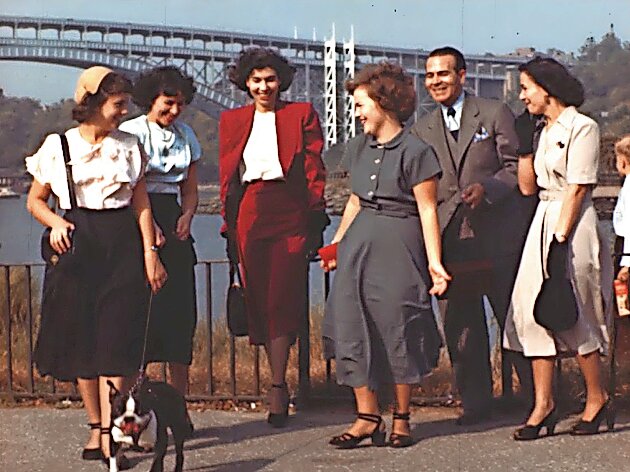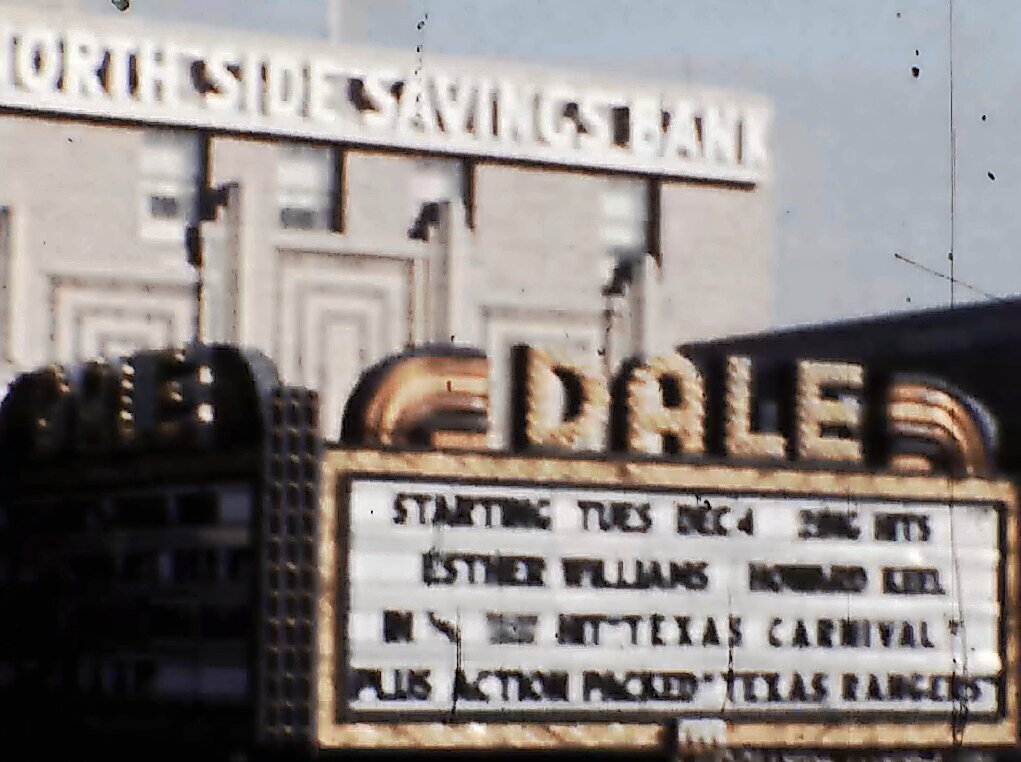Rare 1950s film footage unearthed by Kingsbridge Historical Society reveals vibrant past
The Kingsbridge Historical Society has unearthed another rare treasure — a collection of 1950s film footage that offers a more colorful glimpse into the world of Riverdale, Kingsbridge and Spuyten Duyvil from more than 70 years ago.
This discovery, which includes both archival material and home movies, was hidden in the society’s archives until president Nick Dembowski recently brought it to light.
The footage is divided into two distinct sets. The first consists of archival films mainly depicting the Kingsbridge area, while the second captures a young couple who moved to Spuyten Duyvil in 1951.
Living in an apartment on Fairfield Avenue, the couple filmed their walks through local parks, admiring the picturesque views of the Hudson River and the neighborhood’s architecture, unaware they were documenting a chapter of history.
“They were just completely enamored with the neighborhood,” Dembowski said.
This unexpected historical record was contextualized through archival copies of The Riverdale Press dating back to the 1950s, which Dembowski employed to identify key events, figures and buildings.
A stark reminder of the anxieties of the era, some scenes depict local citizens being recruited for Cold War civil defense efforts, with buildings featuring advertisements urging residents to prepare themselves for nuclear attacks.
One advertisement from the era, urging volunteers to step up, warned that Riverdale was “fully unprepared for a nuclear attack”. While any preparation efforts would likely have proven insubstantial in the event of nuclear war, “it was partly about making people feel like there was something they could do,” Dembowski said.
The footage also captures traces of World War II-era practices, such as neighborhood blackout drills — buildings like P.S. 24 still display the faded stickers marking them as fallout shelters.
On a more lighthearted note, the film also illuminates the bustling recreational centers of the 1950s. Several bowling alleys, and a small amusement park for kids, now long gone, can be seen in the footage.
And in bittersweet contrast to today’s zero, the neighborhood formerly housed two iconic movie theaters: the Dale Theater, now the site of the Dale Diner, and the palatial RKO Marble Hill, which once stood where a Kentucky Fried Chicken now operates. Old advertisements from The Riverdale Press show films like A Streetcar Named Desire playing in these theaters in 1951.
Dembowski noted how the neighborhood has lost many of its “third places”—a term coined by sociologist Ray Oldenburg to describe communal spaces like coffee shops, libraries and bars, where social interaction thrives outside of work or home.
Significant changes in the neighborhood are also documented, such as the construction of the Marble Hill housing projects, which were initially occupied almost entirely by World War II veterans and their families.
In an age when everyone can capture photos and videos with ease, Dembowski commended the 1950s neighborhood documentarians for how much more effort was required to shoot these films in their time.
“You needed a camera, film, and had to mail it off to Kodak for development,” he said. “Most people focused on family events — only a few oddballs went out and filmed public life.”
Perhaps what left Dembowski most in awe was the vibrancy of the color film.
“Seeing the neighborhood in color — things like the marquee of the Dale Theater and the green ivy on apartment buildings — was really special,” he said. “All the photographs we have from the time are in black and white.”
The Kingsbridge Historical Society plans to share this footage with the community Oct. 9 at Riverdale Senior Services. Dembowski said he hopes to gather additional insights and memories from those who lived through that time, preserving even more of the neighborhood’s history.










